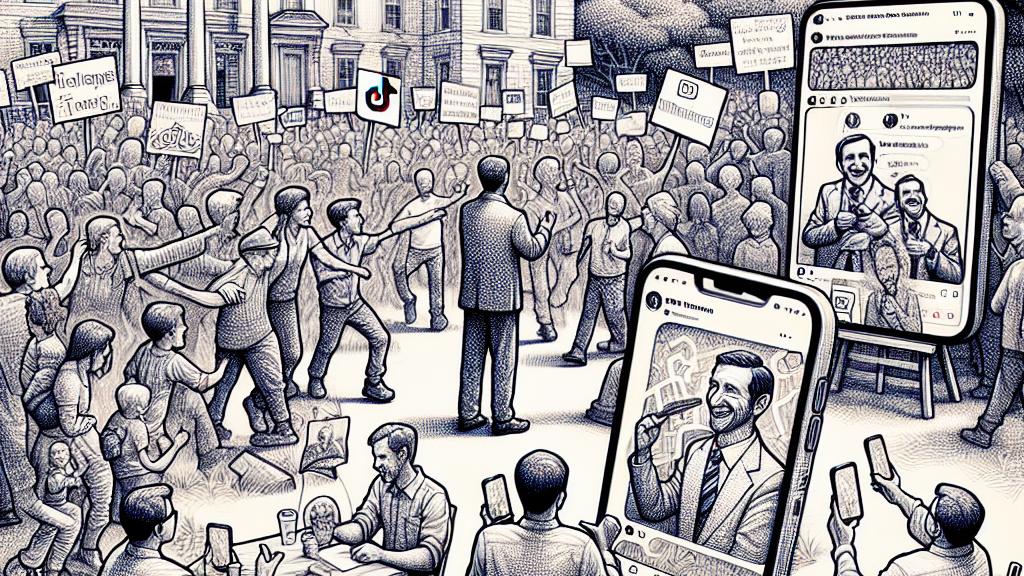Impact of TikTok on Election Results: Romania's Regulatory Authority Calls for Suspension
Overview
- The Romanian regulatory authority calls for TikTok's suspension, raising red flags over potential electoral fraud and misinformation.
- Independent candidate Calin Georgescu, backed by a viral TikTok campaign, saw a shocking surge in popularity.
- Concerns mount about social media's overwhelming influence on public opinion and the democratic process.

The Extraordinary Election Dynamics in Romania
In Romania, the presidential election held on November 24, 2024, unfurled in a way few anticipated. Independent candidate Calin Georgescu, previously ranked far behind in polls, achieved an astonishing 23% of the votes—the highest of any candidate. His rise can be largely attributed to a well-crafted TikTok campaign that resonated with younger voters. He portrayed relatable moments, such as attending local community events and discussing contemporary policy challenges in engaging ways. For instance, a clip featuring him playing with children in a park elicited immense responses, gathering over 160,000 likes in a matter of days. Such authentic glimpses offered a refreshing contrast to traditional political campaigning, demonstrating the power of social media in modern politics.
Response from ANCOM: A Call for Action
In an unexpected turn of events, the Romanian National Communications Authority (ANCOM) swiftly called for TikTok’s suspension, citing serious concerns over the platform's potential for spreading misinformation and manipulating voter sentiment. This decision was triggered by the discovery of numerous bot accounts that were endorsing Georgescu without any transparency, blurring the lines between genuine support and artificial influence. ANCOM stated, 'We cannot allow the integrity of our elections to be compromised by unverified digital strategies.' Their demand for an immediate halt to TikTok services stood as a testament to the regulatory body’s commitment to maintaining electoral fairness. Such actions highlight how necessary it is for regulations to keep pace with the rapid advancements in technology that can disrupt political ecosystems.
Unfolding Global Conversations on Democracy and Digital Ethics
This incident goes beyond Romania, igniting a global conversation about the ethical implications of social media in democratic societies. Experts warn that the Romanian election serves as a critical warning about the unchecked power of platforms like TikTok, especially in politically charged environments. Various officials from the European Union have voiced that what happens in Romania could foreshadow a broader wave of misinformation influencing elections across Europe. Furthermore, with foreign intervention and manipulation becoming widely concerning, calls for stronger regulatory frameworks are echoing all around the continent. While TikTok has denied any wrongdoing, insisting that Georgescu utilized a variety of platforms for his campaign, the brand now finds itself at the center of debates concerning freedom of expression versus the need for responsible digital governance. Ultimately, the importance of transparency and accountability in social media cannot be overstated as we navigate the complexities of information dissemination and its repercussions on democracy.

Loading...